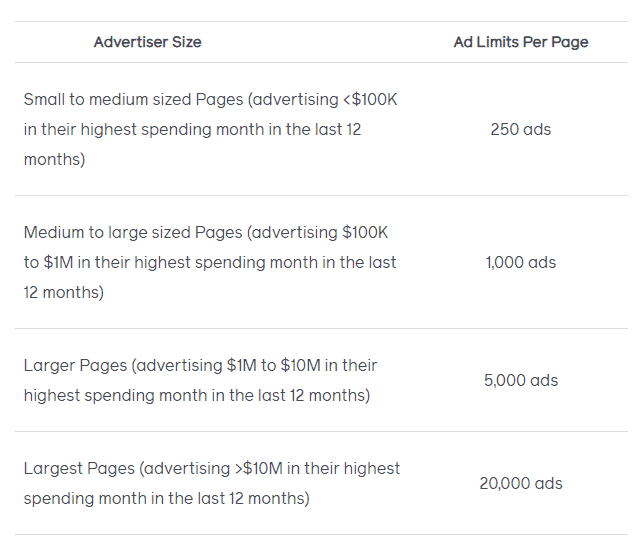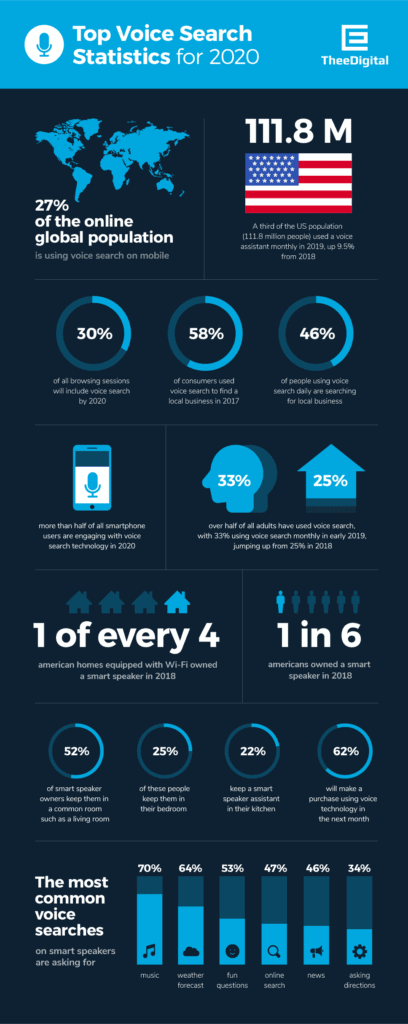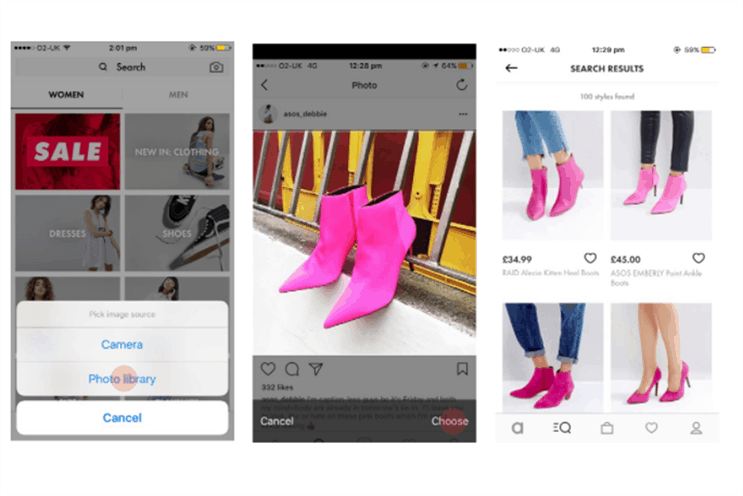
Like any innovative industry, digital marketing is always in flux.
New breakthroughs in technology and the way consumers consume content demands that marketers stay agile and always two steps ahead of the next big marketing trend.
As customers continue to grow comfortable with digital marketing trends like automation, personal smart technology tools, AI, and voice activation, digital agencies need to go even further, meeting their customers not where they are, but where they’re going to be.
Naturally, technological development is a game of attrition.
Only the strongest, most powerful tools and services survive. And that’s been vividly clear this year in light of the ongoing COVID-19 pandemic. Marketers and consumers are living their lives online now more than ever as the outbreak has forced people to work from home, social distance, and generally avoid one another.
At the same time an evolving collective social consciousness—a reflection of movements like the 2020 election, Black Lives Matter, and the pandemic—has forced marketers to adjust their strategies to reflect the global zeitgeist.
But with this strange new world has come enormous opportunities for digital marketers to get creative. Here we’ll pull out our crystal ball and look at 9 digital marketing trends that are going to dominate 2021.
AI Continues to Automate Everything
A few years back, AI was simply the name of a Steven Spielberg film. But today we know it as artificial intelligence or machine learning. And it’s everywhere—especially in digital marketing.
Facebook’s new ad limitation is a perfect example. In addition to making advertisers stick to a certain ad limit, Facebook is making its Campaign Budget Optimization (CBO) feature mandatory.

CBO automates the allocation of an advertiser’s Facebook budget between different ad sets, in a move that’s designed to optimize the advertiser’s budget—however, it also takes some control away from the individual marketer. Expect to see AI continue to grow in 2021.
A Renewed Interest in Branding
The pandemic has made for a tougher marketplace for many brands. Forced closures sent businesses scrambling this year and many are still far from recovered. But on the bright side, with the lockdowns have come increased eyeballs online.

As companies adapt to the pandemic consumer’s needs, they’ve realized that they need a new way of doing business online. Beyond creating e-commerce solutions where there once were none or helping businesses simply get a website up and running, digital marketers have a great opportunity in 2021 to help businesses see the power of branding once again by focusing on an “in this together” attitude.
In March Edelman interviewed 12,000 people in Brazil, Canada, China, France, Germany, India, Italy, Japan, South Africa, South Korea, the UK, and the U.S and they found that 71 percent agreed that if they perceive that a brand is putting profit over people, they will lose trust in that brand forever.
A perception of honesty and trustworthiness has never been more critical and good branding can bolster that feeling heading into the new year.
Seamless Integration Becomes A Necessity
The way everyone does business has changed, and it’s unclear which of those changes will be permanent once the pandemic has passed. That means companies will need digital marketers to help the public understand their new or adjusted services.
For instance, we’re seeing an increase in the “brick-and-click” retail model: an integrated online-IRL model in which a customer can order a product on their phone, then pick it up curbside.
As more businesses shift to this model, especially during the pandemic, omnichannel messaging will become even more important. Campaigns that can provide experiential marketing—like a live event done digitally—can bring a large audience to a brand.
A Values-First Mentality
Avoiding hot-button issues may have been the marketing mentality for years, but in 2020, the concept is no more. Consumers are looking for brands to be socially aware and take a stand.
There are many ways to do this, some bolder than others, but the key takeaway is that the discussion for digital marketers will likely move away from “should we…” to “when should we…” in the next year.
So take a cue from some brands that have already made addressing social issues a hallmark of their brand, like Airbnb.
The home rental business drew national attention with its “#weaccept” campaign. In response to President Donald Trump’s travel ban, Airbnb aired a Super Bowl LI ad that declared, “We believe no matter who you are, where you’re from, who you love or who you worship, we all belong. The world is more beautiful the more you accept,” followed by the hashtag #weaccept.
This worked because it aligned with AirBnB’s services — a home, for all.
Growth of Voice Search
“Alexa, add milk to my shopping list” is becoming as common as jotting down a grocery list on paper. With improved voice search, consumers are embracing the ease of simply saying what they want, from movie requests to directions. In fact, DVS Interactive reports that 20 percent of all mobile searches are done by voice.
Marketing strategies, therefore, must be adjusted to match this new type of search language. That means analyzing and understanding the difference between the way a search is typed versus the way it is spoken.
Case in point: the way someone searches the weather. On Google they might type in “weather in Charleston, SC” but on voice, they’ll likely say “What is the weather in Charleston, South Carolina?”
Developing SEO tactics that work with voice search is one thing marketers need to consider to get ahead of the competition in 2021.

Visual Search
In addition to voice search, visual search is going to be a growing concern in 2021 as well.
By using tools like Google Lens, a consumer can search what they see—which means that image alt-text is taking on a whole new level of importance. Rather than merely relying on SEO, marketers will need to improve image sitemaps for images being discovered by search engines, as well as use descriptive filenames for those images.

And there’s no time for hesitation. Retail Customer Experience estimates that by 2021, “early adopters that redesign their websites to support visual and voice search will increase their digital commerce revenue by 30 percent.”
While the technology is still in its infancy, some say consumers are already demanding the tool and they’re the savviest among us. Research from ViSenze found that 62 percent of Gen Z and Millennial consumers want to have visual search capabilities, according to Business Wire.
So what’s the takeaway? Get complacent and prepared to be lapped. Smart digital marketers will keep tabs on both voice and visual search in 2021, and develop their SEO for both.
Don’t want the hassle of following all of the digital marketing trends yourself? Contact the professionals at Zen Media. We watch the digital marketing trends so you don’t have to.

Leave a Reply